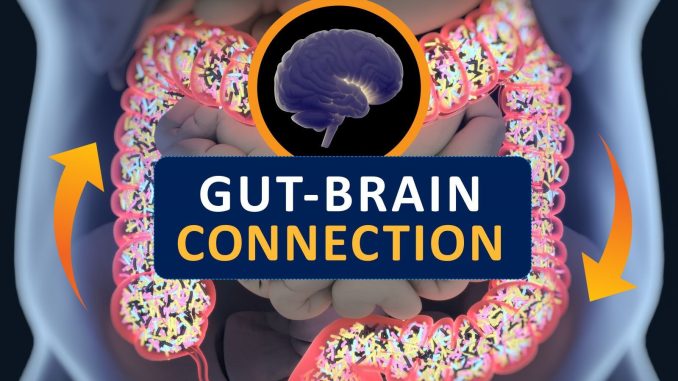
In recent years, the scientific community has turned its attention to a fascinating and increasingly undeniable connection: the intricate relationship between our gut and our mental health. Far from being a mere digestive organ, the gut is now understood to be a complex ecosystem, often referred to as our “second brain,” teeming with trillions of microorganisms that collectively form the gut microbiome. This intricate network of bacteria, fungi, and other microbes communicates bidirectionally with the brain through a sophisticated highway known as the gut-brain axis, influencing everything from our mood and cognition to our stress response and susceptibility to mental health disorders. Understanding this profound link offers revolutionary insights into how we might approach both physical and psychological well-being, moving beyond traditional paradigms to a more holistic view of human health.
The foundation of this connection lies in the sheer volume and diversity of the gut microbiome. While we often associate bacteria with illness, the vast majority of microbes in our gut are beneficial, performing essential functions that impact our entire physiological system. These microorganisms play a critical role in digesting food, synthesizing vitamins, and training our immune system. Crucially, they also produce a wide array of neuroactive compounds, including neurotransmitters that are identical to those found in the brain. For instance, a staggering 90% of the body’s serotonin, a key neurotransmitter associated with mood regulation and feelings of well-being, is produced in the gut. This revelation alone highlights the potential for the gut to exert a profound influence on our emotional state.
The communication highway between the gut and the brain, the gut-brain axis, is multi-faceted and complex. It involves several pathways, including the vagus nerve, a major nerve extending from the brainstem to the abdomen, serving as a direct communication link. Signals sent via the vagus nerve from the gut to the brain can influence brain function, mood, and even behavior. For example, studies have shown that stimulating the vagus nerve can have antidepressant effects, and conversely, inflammation in the gut can lead to changes in brain chemistry. Beyond the vagus nerve, the gut microbiome also communicates with the brain through the production of short-chain fatty acids (SCFAs), such as butyrate, propionate, and acetate, which are byproducts of microbial fermentation of dietary fiber. These SCFAs can cross the blood-brain barrier and influence brain function, energy metabolism, and inflammation within the brain.
Furthermore, the gut microbiome directly influences the immune system, and given the established link between inflammation and mental health disorders like depression and anxiety, this is a critical connection. A healthy and diverse gut microbiome helps to maintain the integrity of the gut lining, preventing harmful substances from “leaking” into the bloodstream—a phenomenon often referred to as “leaky gut.” When the gut lining is compromised, it can trigger a systemic inflammatory response, which can then extend to the brain, contributing to neuroinflammation. Chronic low-grade inflammation in the brain is increasingly implicated in the development and exacerbation of various mental health conditions. By fostering a balanced and robust gut microbiome, we can help to quell systemic inflammation, thereby protecting brain health and supporting mental well-being.
The implications of this gut-brain axis are far-reaching for understanding and potentially treating mental health disorders. Research has demonstrated that individuals with depression, anxiety, and even autism spectrum disorder often exhibit distinct differences in their gut microbial composition compared to healthy individuals. While it’s a chicken-and-egg scenario (does the altered microbiome cause the mental health issue, or vice versa?), the correlation is compelling. This understanding opens up novel therapeutic avenues, such as the use of probiotics (beneficial bacteria) and prebiotics (fibers that feed beneficial bacteria) to modulate the gut microbiome and potentially improve mental health outcomes. Imagine a future where dietary interventions or specific microbial transplants become a standard part of mental health treatment plans.
So, how can individuals cultivate a healthy gut microbiome to support their mental health? The answer largely lies in dietary choices. A diet rich in diverse plant-based foods is paramount. Fiber, particularly soluble and insoluble fiber found in fruits, vegetables, whole grains, nuts, and seeds, acts as fuel for beneficial gut bacteria, enabling them to thrive and produce health-promoting compounds. Including fermented foods like yogurt, kefir, kimchi, sauerkraut, and kombucha can introduce beneficial live cultures directly into the gut. Limiting processed foods, refined sugars, and excessive amounts of unhealthy fats is also crucial, as these can promote the growth of less desirable gut microbes and contribute to inflammation.
Beyond diet, lifestyle factors also play a significant role. Chronic stress can negatively alter the gut microbiome composition and impair gut barrier function, creating a vicious cycle between stress and gut dysbiosis. Practices like mindfulness, meditation, regular exercise, and adequate sleep are therefore not just good for mental health in isolation, but also directly benefit the gut. For example, exercise can increase microbial diversity, and sufficient sleep allows the gut to repair and rejuvenate.
In essence, the emerging science of the gut-brain axis compels us to rethink how we approach mental health. It posits that true well-being is not just about the mind in isolation, but a dynamic interplay between our thoughts, emotions, and the trillions of tiny inhabitants within our digestive system. By nurturing a healthy gut microbiome through mindful dietary choices and supportive lifestyle habits, we empower our “second brain” to communicate positively with our primary brain, paving the way for enhanced mood, greater cognitive resilience, and a more profound sense of overall health and vitality. This holistic perspective offers a powerful and accessible pathway to improving both our physical and psychological landscapes.